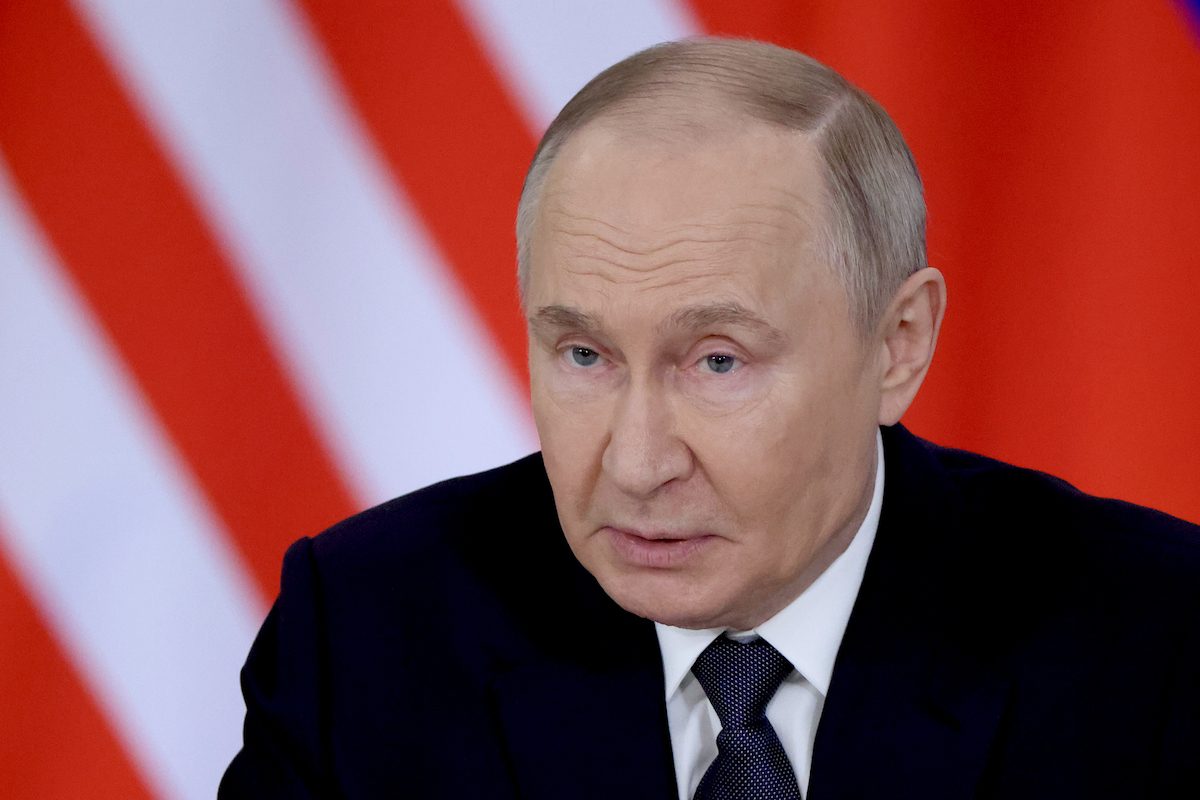Should the United States be sending hundreds of millions of dollars in lethal weaponry to Ukraine? That’s not a policy discussion we’ve heard aired in the past two weeks. This seems odd, because the provision of such lethal weaponry is at the center of the rapidly-unfolding Trump/Ukraine/impeachment drama. Trump is accused of withholding ‘aid’ for the purpose of ‘pressuring’ Ukranian authorities to carry out investigations that advance his political interests. At least at first blush, it’s a valid matter for inquiry. But what about the ‘aid’ itself?First off, ‘aid’ is a strangely euphemistic term to describe high-powered anti-tank missiles, grenade launchers, and sniper rifles to be used for the express purpose of causing death and destruction, prolonging a Cold War-style proxy conflict between the US and Russia. That’s another layer of irony, because Trump spent the first two-plus years of his presidency being maligned as a devious colluder with Putin. Yet here he is dispatching state-of-the-art weapons systems directly into Russia’s immediate sphere of influence. (Despite the political consternation over how the ‘aid’ came to be sent, it has in fact been sent.)The Wall Street Journal notes that the ‘aid’ program ‘enjoys strong support on both sides of the aisle’ — which should automatically raise red flags. Typically when an issue becomes safely ensconced in the realm of ‘bipartisan consensus’ it means something sinister is afoot. Forgotten is the fact that Barack Obama repeatedly refused to send ‘aid’ of this kind, much to his credit given the dangerous geopolitical implications. But does that mean now that the previous president had an intolerable, fringe position on the subject? You’d never know, because the policy substance has been entirely obscured in favor of omni-directional partisan bluster. ‘Progressives’ now appear to view arming Ukraine as an intrinsic good, and conservatives/libertarians have no intelligible view except insofar as it casts Trump’s behavior in the most favorable possible light. Meanwhile Cold War 2.0 rages on and no one cares — other than for how it affects the latest impeachment-frenzied news cycle. You want to accuse Trump of corruption? Fine. Take a look at his special envoy to Ukraine, Kurt Volker, who resigned in the heat of the latest Trump/Zelensky phone call episode. That Volker was ever appointed to that position is almost comically corrupt. He’s the executive director of the McCain Institute, which is funded by defense contractor behemoth Raytheon, and a lobbyist for BGR Group, which is also of course Raytheon-funded. In his capacity as ‘special envoy’ he advocated for the swift dispensation of ‘aid’ — which just so happens to enrich Raytheon. But Volker is only considered noteworthy because he’s provided salacious texts to Congress, not because he’s emblematic of quintessential ‘swamp-like’ corruption. That enterprise, after all, is wholly bipartisan and therefore of little interest.Sending large amounts of lethal weaponry into a hot war scenario on Russia’s border (presumably in perpetuity) has now been sanctified as conventional wisdom. Democrats love it because it hamstrings Trump politically, and they can insinuate that his temporary withholding of the ‘aid’ helped Russia. Republicans love it because it shows Trump is ‘tough on Russia’ and ‘tough’ in general, and very eager to do whatever’s necessary to drive up defense industry profits. The impeachment fracas will leave no room for any dispassionate evaluation of the wisdom of this policy. Oh well.
You want to accuse Trump of corruption? Fine. Take a look at his special envoy to Ukraine, Kurt Volker, who resigned in the heat of the latest Trump/Zelensky phone call episode. That Volker was ever appointed to that position is almost comically corrupt. He’s the executive director of the McCain Institute, which is funded by defense contractor behemoth Raytheon, and a lobbyist for BGR Group, which is also of course Raytheon-funded. In his capacity as ‘special envoy’ he advocated for the swift dispensation of ‘aid’ — which just so happens to enrich Raytheon. But Volker is only considered noteworthy because he’s provided salacious texts to Congress, not because he’s emblematic of quintessential ‘swamp-like’ corruption. That enterprise, after all, is wholly bipartisan and therefore of little interest.Sending large amounts of lethal weaponry into a hot war scenario on Russia’s border (presumably in perpetuity) has now been sanctified as conventional wisdom. Democrats love it because it hamstrings Trump politically, and they can insinuate that his temporary withholding of the ‘aid’ helped Russia. Republicans love it because it shows Trump is ‘tough on Russia’ and ‘tough’ in general, and very eager to do whatever’s necessary to drive up defense industry profits. The impeachment fracas will leave no room for any dispassionate evaluation of the wisdom of this policy. Oh well.
Wait, what aid are we actually sending to Ukraine?
‘Aid’ is a strangely euphemistic term to describe high-powered anti-tank missiles, grenade launchers, and sniper rifles

Golden domes of the Kiev Pechersk Lavra Orthodox Christian monastery
Should the United States be sending hundreds of millions of dollars in lethal weaponry to Ukraine? That’s not a policy discussion we’ve heard aired in the past two weeks. This seems odd, because the provision of such lethal weaponry is at the center of the rapidly-unfolding Trump/Ukraine/impeachment drama. Trump is accused of withholding ‘aid’ for the purpose of ‘pressuring’ Ukranian authorities to carry out investigations that advance his political interests. At least at first blush, it’s a valid matter for inquiry. But what about the ‘aid’ itself?First off, ‘aid’ is a strangely euphemistic term to…
Comments
Share
Text
Text Size
Small
Medium
Large
Line Spacing
Small
Normal
Large
























